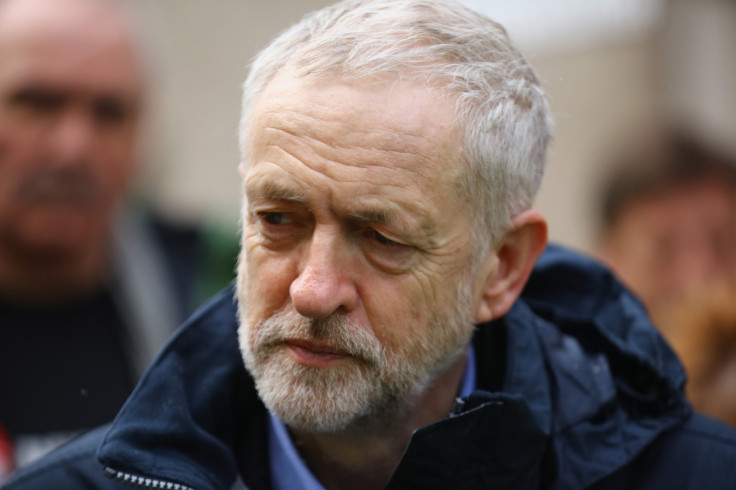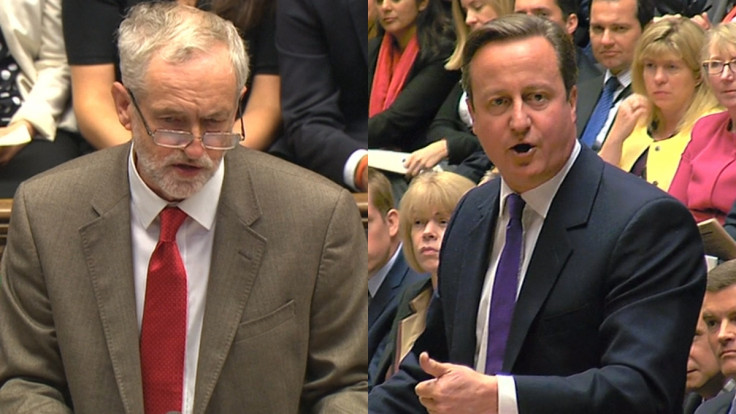Labour reshuffle: David Cameron is thrilled by Jeremy Corbyn's failure to unite his party

Since before Christmas, speculation was growing over Jeremy Corbyn's first shadow cabinet reshuffle. Coming only four months after he was elected leader, it seemed as though the new leader was reacting to events.
The Syria vote had fanned flames of speculation over whether Hilary Benn was going to lose his position. As speculation continued, it was increasingly suggested by Corbyn's critics that he was about to conduct a "revenge reshuffle" against those who had seemed to challenge his authority in the preceding months.
It is important to remember that a cabinet reshuffle is essentially about keeping the balance between various power blocs within the party stable as so to reward those who may have influence, and to remove those who may harm their future electoral appeal. Given this, Corbyn's logical strategy would be to maintain that balance for fear of precipitating further negative assessments of his leadership beyond his supporters.
However, Corbyn's reshuffle was unlike many others from recent history. Fundamentally, one of the expectation of commentators is that they tend to be conducted more speedily than Corbyn appeared to be. Indeed, rather than the changes being announced over the course of an afternoon or evening, the new Labour leader took more than 36 hours to make the details of the first changes known.
"Unfortunately for Corbyn, he has left his position exposed to accusations of weakness and indecisiveness, which Cameron and his critics within the Labour Party have been able to successfully exploit"
The wait was broken with Michael Dugher announcing he had been sacked by Corbyn for "disloyalty". This provided commentators with slim pickings as they tried to analyse the tone of the reshuffle; however, given it was only one piece of unofficial news, conclusions were sketchy. Put simply, more activity was required. We would have to wait several more hours before news of more changes emerged.
In the event, after two days, Corbyn's reshuffle appears to have had a destabilising effect. Indeed, the popular figure, Pat McFadden was removed as Shadow Europe Minister, also for "disloyalty to the leader". The disloyalty came in the House of Commons following his condemnation of the Paris attackers, which supporters have since suggested reveal sound judgment rather than disloyalty.
Furthermore, Maria Eagle has been demoted as Shadow Defence Secretary, with Emily Thornberry taking her position. Hilary Benn remains as Shadow Foreign Secretary provided he respects the views of the Labour leader on foreign policy. Given Benn's speech before the Syria vote, this position may prove problematic over the coming weeks and months.
These moves reveal something of Corbyn's broader ideological strategy. Put simply, he is striving to place a stronger grip over the party to ensure his views are represented at the highest levels. This suggests debate is less welcome than originally thought.
Indeed, rather than have a genuine debate about the future of socialist politics, Corbyn appears to believe the conclusion is already known; for him, that conclusion is his conception of socialism is the only one in town.
This puts the Labour Party into a difficult ideological position. As a social democratic party, it is driven by the core beliefs of equality of opportunity combined with a socially progressive outlook. However, the type of socialism being gifted prominence in the party has more in common with more militant Bennite traditions of the 1970s.
This style of socialism eschews debate because key certainties are already known – that capitalism is the enemy; that Western foreign policy is imperialist; and that only a socialist economy can provide genuine equality. There is no debate to be had on these core assumptions. Given this ideology appears to inform Corbyn's decisions, it is no surprise that he would strive to remove those who do not agree that these are "certainties".
Needless to say this is a long mission, and future reshuffles in 2016 will continue to draw out those who share his conception of socialism. However the unasked question is how the electorate will respond to these hard left changes to Labour's message.
In May the electorate returned the Tories to government with their first majority since 1992. It is unlikely they will respond well to a harder left Labour Party, and history tells us (1931, 1935, 1951, 1955, 1959, 1970, 1979, 1983, 1987 and 1992) that the Conservatives tend to be the beneficiaries at the ballot box when Labour is ideologically divided.

The damaging fallout from Corbyn's reshuffle has become more evident with Jonathan Reynolds, Stephen Doughty and Kevan Jones resigning their positions. Rumours are running through Westminster of growing discontent, which Cameron sought to make capital out of at the start of Prime Minister's Questions.
As Andrew Neil reflected on the Daily Politics, this developing story has quickly become more than about the reshuffle. As stated above, it was about party management and balances of power, and has now become a question of Corbyn's credibility as leader.
Unfortunately for Corbyn, he has left his position exposed to accusations of weakness and indecisiveness, which Cameron and his critics within the Labour Party have been able to successfully exploit. At present, the current political climate will inevitably raise questions over Corbyn's leadership of the party, which at present has failed in its first objective – to unify the party. Indeed, he is responsible for its growing divisions and ultimately may pay a high price.
Dr Andrew S Crines is a Lecturer in British Politics at the University of Liverpool.
© Copyright IBTimes 2025. All rights reserved.






















